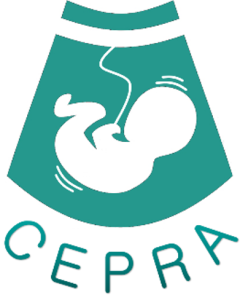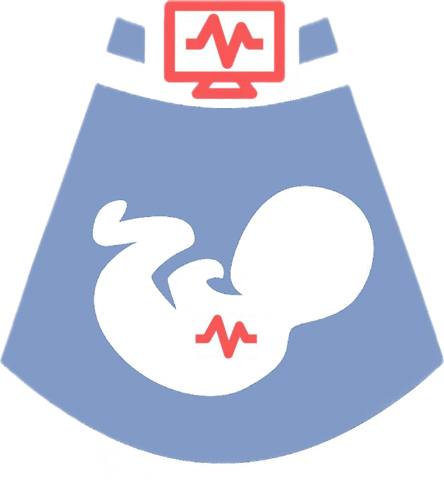OUR RESEARCH
Our team conducts research to improve knowledge on the whole spectrum of fetal growth restriction. Here are some of the most important projects.

Many studies are being done on fetal growth restriction (FGR). There has been a lot of variation in how studies have been done, such as how FGR is defined and what results are reported. This makes it difficult to compare studies and draw good meta-conclusions. Therefore, we tried to harmonize some aspects with Delphi consensus procedures.
Read more
Ideally, there is one standard way (a gold standard) to define a disease. However, there is no gold standard for fetal growth restriction and placental insufficiency. In a situation in which there is no gold standard and empirical evidence is not unequivocal, the best alternative is to use the ‘wisdom of the crowd’. Agreement between experts can be reached through the Delphi consensus method. This method gathers and feeds back expert opinions over a number of rounds, and is aimed at converging to consensus. If experts are selected appropriately, the consensus is likely to be accepted and used in clinical practice.
We have lead and collaborated on several consensus definitions for fetal growth restriction: for singleton pregnancies, twin pregnancies, the stillborn and the newborn. We also worked on a minimal reporting set and on the core outcome set for fetal growth restriction.
Eight years after the consensus definition on FGR was published (2016), we have evaluated its impact and implementation. We are now preparing a procedure to evaluate the need for adapting the definition. If you are a specialist in FGR, we invite you to participate. For the survey to express your interest in participation and for more information on the procedure, please click here.

The CEPRA study is a cluster-randomized multicenter trial with 2160 participants, and has completed recruitment Fall 2024. The study evaluates diagnosis and management in women reporting to their prenatal caregiver with reduced fetal movements and appropriate fetal size at term age. The main research question is whether pursuing delivery if there is an abnormal CPR (<1.1) in fetuses of normal size improves neonatal outcomes.
Read more
In half of the participating hospitals, the CPR results are concealed the treating physician (concealed study arm), and CPR measurements are performed by someone not involved in clinical decision-making. In these hospitals, treatment is not based on CPR results, and standard care is provided. Participants undergo a one-time blood draw for biomarkers and complete online questionnaires at four time points. The other half of the hospitals measure the CPR, and treatment decisions are based on CPR results. If an abnormal CPR is detected (estimated at 5%), delivery is pursued. For participants with a normal CPR result, standard care continues. All participants complete online questionnaires at four time points, and those with an abnormal CPR undergo a one-time blood draw.
Study recruitment ran from from 2021 to Fall 2024. The results are being expected Spring 2025.

The STRIDER study investigated whether the medication sildenafil could improve fetal growth and perinatal outcomes in pregnancies affected by early-onset FGR.
Read more
The Dutch STRIDER study was a randomized controlled trial that ran in 11 Dutch hospitals. There were simultaneous sister trials in the United Kingdom, New Zealand/Australia, and Canada. Recruitment ran from 2015 to 2018, and 216 patients participated in the trial.
The findings of the study were that antenatal maternal sildenafil administration for severe early-onset FGR did not reduce the risk of perinatal mortality or major neonatal morbidity, and may increase the risk of neonatal pulmonary hypertension. Many additional analyses have been done in this valuable dataset, improving much of our knowledge on eoFGR.
Currently, the data from all STRIDER trials are being collated in a meta-analysis with individual patient data.

The DRIGITAT study was a multicenter clinical cohort study with a nested randomized controlled trial (RCT). It evaluated if Doppler ultrasound could differentiate between constitutionally small for gestational age (SGA) fetuses from FGR fetuses; and whether pursuing early delivery late preterm in fetuses with an abnormal CPR (<1.25) improves neurological development at two years of age.
Read more
Between 2018 and 2020, nineteen Dutch hospitals participated in the DRIGITAT study. 690 Women with an SGA pregnancy participated and were closely monitored. If the CPR remained normal in cohort participants, delivery was typically pursued from 40 weeks. 40 Women in whom the CPR was repeatedly abnormal (<1.25), joined the RCT, and were randomized between immediate induction of labor and expectant management. If randomized to expectant management, the local protocol was followed, and delivery was typically pursued from 38 weeks.
The first results, in short, were that Doppler ultrasound effectively identifies perinatal risk. However, early delivery most likely does not result in improved short-term outcomes.

Pregnancy is a life-defining period, and adverse events in pregnancy have a considerable impact. Therefore, mental health and the influence of pregnancy and events during pregnancy is an important topic. The domains anxiety and depression can have a significant influence on quality of life. We therefore always include these aspects in our study designs. We collaborate with patient representatives, psychologists and psychiatrists who have expertise in mental health of the pregnant person and partner.

In the TRUFFLE study, an RCT in early-onset FGR, the monitoring of fetal condition with or without the Doppler of the ductus venosus was investigated to improve outcomes.
Read more
The European TRUFFLE study was a randomized controlled trial that recruited women with a pregnancy with early-onset FGR in 20 European tertiary care units. Recruitment ran from 2005 to 2010, and 503 patients participated in the trial. Although the overall burden of adverse outcomes was still significant, the outcomes of the entire cohort were better than previously reported, which was hypothesized to be due to protocoled management. The main analysis and subsequent post-hoc analyses suggested that the addition of ductus venosus measurements to the monitoring strategies improved perinatal outcomes.

